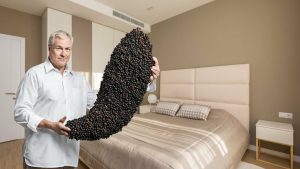Is it better to eat before or after a workout? Many of us wonder this when we head to the gym or slip into running shoes with a rumble in our bellies. While you don’t want to be too full before exercising, not eating at all can cause you to lose energy.
Many people will go out to workout without eating anything; after all, why risk getting a stitch midway through your run? However, fueling up before your workout can make or break your session’s performance and how far you develop in your fitness journey in the long run.
We contacted with a sports and exercise medicine dietitian to clarify the answer and help you avoid one of the most common workout blunders. So, whether you favor strength training or cardio, here’s what you need to know about eating before or after a workout, as well as what you should consume to get the most out of your workout routine.
WHAT TO EAT PRIOR TO WORKOUT
According to Chapman, carbohydrates should be the center of your meal before exercising. “These are the primary energy sources for moderate to high-intensity activity, so consuming sources of these should help,” she notes. 1 to 4g of carbohydrate per kilogram of body weight one to four hours before workout should enough.
Here are some suggestions for what to eat before working out:
two teaspoons honey on one bagel (65g carbohydrates)
Strawberry jam and two bread rolls (61g)
Two sugar-free cereal bars (60g)
1 bowl oatmeal, medium banana, and jam (65g)
The dietitian advises taking your preferences into account while selecting pre-workout food. “Liquid carbs, for example, may be sufficient for people who have difficulty stomaching chewing and swallowing prior to training, particularly early in the morning.”
She also advises avoiding certain meals that may hamper your progress. “Avoid overhydration and, if possible, avoid foods high in fat, fiber, or protein that take longer to digest before your workout to avoid stomach difficulties.”





